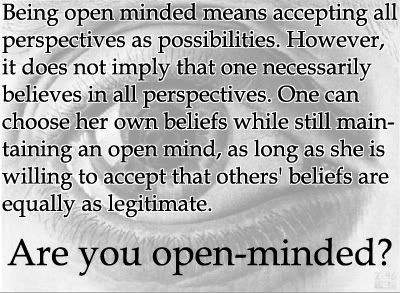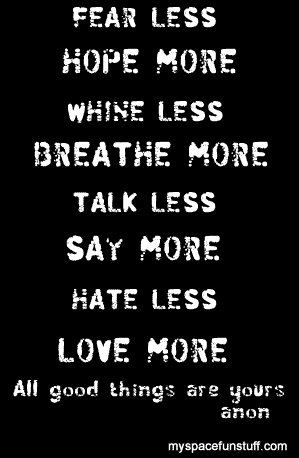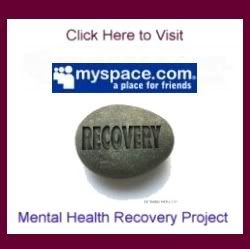I'll be the first to admit...I'm guilty of this myself. I tend to either blame others, or myself, for my problems. But even tho you properly place the blame where it belongs, seriously, where does that get you?
My point? Well, to begin with, there's always someone to blame for screwing our lives up. Here, I'll give you a list of the likely suspects:
- Ourselves
- Parents
- Siblings
- Spouse
- Significant Other
- So-called friends
- Co-workers
- The boss
- Neighbors
- Therapists
- Doctors
- The extremely-slow cashier at the supermarket
- The asshole who doesn't know how to drive in the car ahead of us
- That jerk-off who mows his lawn at 7am
- Dr. Phil (yep, couldn't resist)
So that about covers it for most of us. These people have, and will continue to "wrong" us for as long as we live. And yes, you have the right to be angry. But anger does nothing but immobilize you. It makes you sit there with your fists clenched and stress-hormones pumping.
In other words, anger is a slow-death and doesn't solve anything. And problems are meant to be solved.
Here's a couple examples. I told my boyfriend this morning: "I eat too much, I smoke too much, and I sleep too much." Who's to blame? Well, me, of course. But if I was to sit around, blaming myself for being an over-indulgent loser, then I would feel even more shitty...and eat, drink and sleep some more.
Instead, I found this self-revelation to be a starting point for change. Yeah, A.A. is right when they say that admitting you have a problem is an important step toward recovery. You can't solve it if you don't know it's there. So after saying the first part to my boyfriend, I added: "I guess I need to make some changes."
Here's another example. I was verbally and quite maliciously attacked by a co-worker recently at the start of the workday. My response? Well, I cried my eyes out for an hour, threatened to quit, and only calmed down after I smoked a half-pack of cigarettes and ate 3 donuts. Even then, I was so wiped-out that I went home after lunch.
So could we say she ruin my day?? No!
Did I let her ruin my day? Well, yeah.
Who's to blame? No one.
Again, I used it as a good learning-lesson. True, I analyzed and obsessed about the incident for days (and yes, slept too much, ate too much, and smoked too much...gotta love unhealthy coping skills.)
But in the end, I realized my errors (which, in this case, was to try to reason with someone in an irrational mood - which rarely works.) So now I know what I can try to do the next time this happens (because it will happen again...maybe not with this person, but definitely with another person. There's no shortage of people in irrational moods.)
In both these examples, I could have held on to my anger toward myself and my co-worker. But I didn't. I looked at each situation as a problem to solve, then started doing things to solve it. And as I did this, my anger toward both myself and my co-worker melted away. Seriously, it just melted...
You can never, ever, ever, ever change another person.
But you can change yourself.
In short...
Don't let the blame-game ruin your recovery!!!!









No comments:
Post a Comment